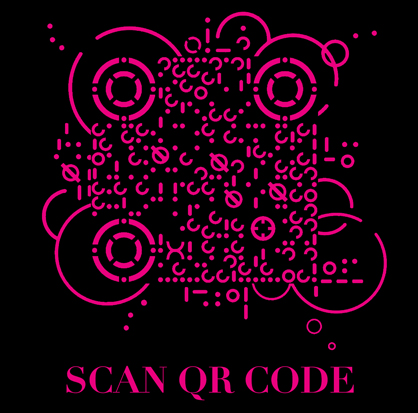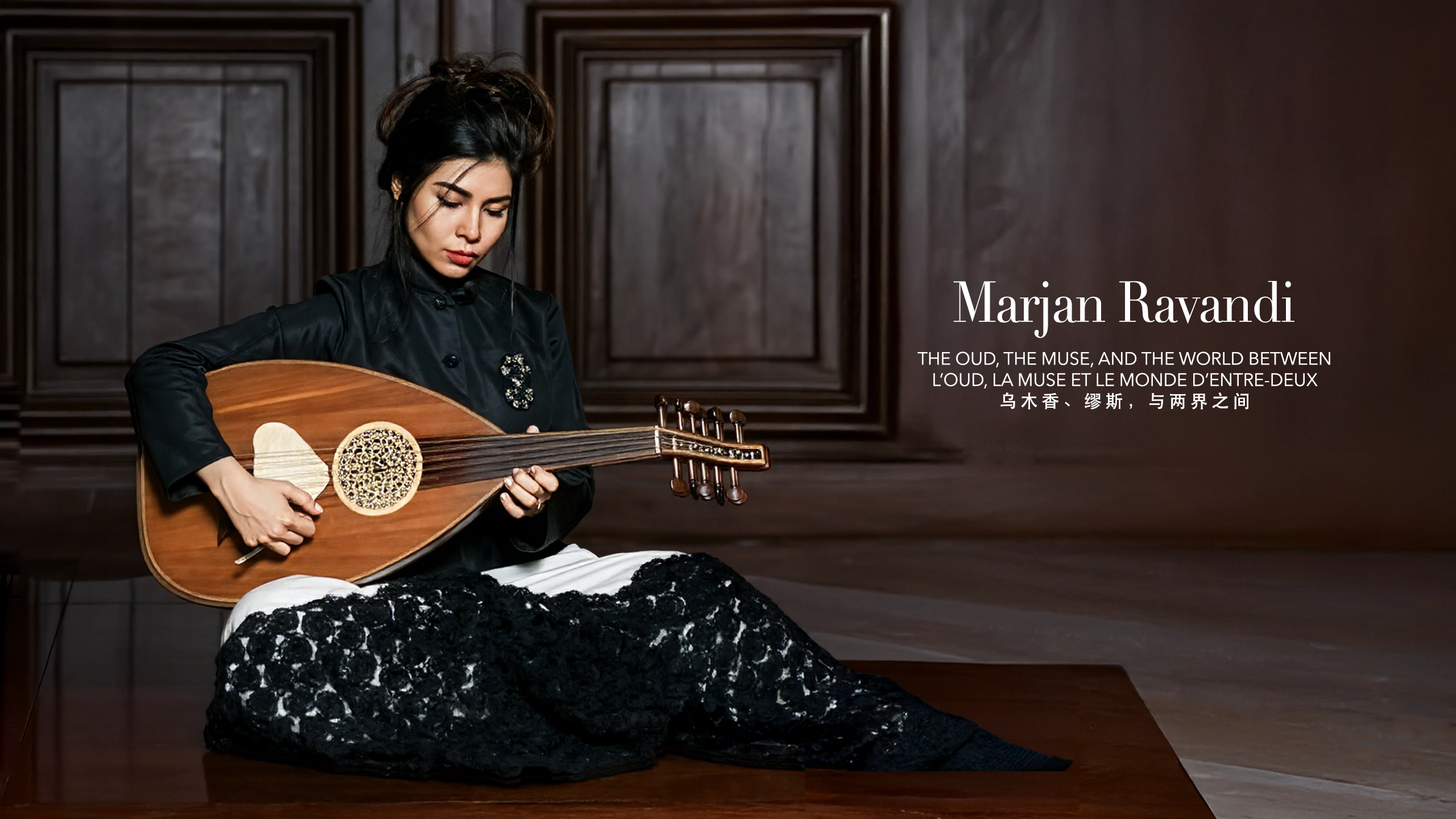

总编辑
MeeKar Lim
国际时尚编辑
Suna Moya
特约编辑
Zhang XiaoXiao

请发送到官方邮箱:
media-works@qcegmag.com
或是官方微信号:
WeChat:QCEGMAG_Contact
QCEG MAG 涵盖世界各地的时尚、美容、配饰、名人、生活、体育和旅游信息与图片。我们的门户网站目前以中文和英文,提供给我们的国际读者和观众。
在 www.QCEGPro.com 网站上,可以了解到我们的专业团队和他们充满激情的创造力。



Marjan 的旅程是一座连接世界的桥梁——东方与西方、传统与创新、声音与静默。她出生于伊朗,自幼便被乌德琴深深吸引,那乐声仿佛能在言语失效之处继续倾诉。怀揣着这份热爱,她来到崇尚艺术自由的巴黎,在这座城市不断打磨技艺,并将乌德琴深邃而动人的魅力带向全球观众。
然而,她的故事远不止舞台之上。作为 Cavendish International Music Standards and Qualifications 的负责人,她正重新定义全球音乐教育的卓越标准——赋予年轻一代表达自我、深度连结、无界创作的力量。她的理念鲜明:真正的精通不仅源于技巧,更来自协作、勇气与启发他人的能力。
某个夜晚,在卢浮宫那承载历史的穹顶之下,Marjan 为一群静默而陶醉的听众演奏。乌德琴深沉的回响在大厅中铺展开来,流淌出一种仿佛能令时间停驻的宁静。“那是难以忘怀的瞬间。”她回忆道——音乐在那一刻化作跨越世纪、文化与心灵的桥梁。
她的合作精神亦在持续绽放。在巴黎的 Saint-Séverin 教堂,她与阿联酋合唱协会主任 Ferrouze Gadery、女高音 Frances Suurd、阿联酋女高音 Fatima Al Hashmi,以及苏格兰风琴家 Carlo Massimo 共同登台。多重声音与传统的交汇,成就了许多人称之为“和平的交响”——音乐凝聚力量的鲜活见证。
如今,Marjan Ravandi 是音乐凝聚力的象征。通过她的演奏、指导与远见,她不断搭建人与文化之间的桥梁,提醒着我们:音乐不仅是一门艺术,更是人类共享的心跳,能够治愈、启发,并将我们凝聚为一体。
— SUNA MOYA
Photography by Thierry Joly Thierry Joly
MARJAN RAVANDI
关于 Marjan Ravandi 的肖像——她以乌德琴串联文化、情感与世界,在传统与创新之间,以音乐这一普世语言连结所有人。

QCEG:当你闭上眼睛回忆在伊朗的童年时,那些旋律中有什么至今仍在你心中回响?
Marjan Ravandi:我童年的音乐记忆就像一份情感档案。旋律可能会改变,但我对声音的好奇与自由感一直存在。我记得伊朗乐器充满家中,朗诵鲁米和哈菲兹的诗篇,以及祖父 Morteza Ravandi——伊朗著名历史学家——讲述的故事。在现代与传统之间成长让我学会尊重传承,同时探索创造力。每次弹奏乌德琴,我都回到那片诗意、温暖与归属的世界。
QCEG:你能记得第一次乌德琴“对你说话”的瞬间吗——不仅仅是作为乐器,而是作为你灵魂的声音?
Marjan Ravandi:我从小学小提琴和钢琴,这为我打下了纪律和基础。但在青少年时期发现乌德琴彻底改变了我对音乐的理解——它像一位有生命的声音,与我的本真深深相连。历史上很少有女性演奏乌德琴,而它散发着精致、女性化的能量。这让我立志认真学习,并获得了音乐文凭和学位。
如今,作为伦敦 Cavendish College 国际音乐部主任,我开发东方乐器和声乐课程,使全球学生能够获得公认的资格——帮助保护和提升传统音乐。
乌德琴不仅是我演奏的乐器,它也是我表达自我、尊重传统并启发他人的方式。
QCEG:在你成长过程中,哪些隐藏的音乐英雄对你影响深远,至今仍伴随你?
Marjan Ravandi:我最重要的影响是我的乌德琴老师 Mansour Nariman,他常被称为伊朗乌德琴之父。向他学习不仅是技术训练,更是一堂关于爱、人性和尊重的音乐课程。我的祖父、老师,以及我成长过程中西方与伊朗音乐的融合,至今指导着我如何聆听、创作和感受音乐。
QCEG:音乐往往是一段勇气的旅程。当梦想看似不可实现时,你如何召唤勇气?
Marjan Ravandi:勇气对我来说,是保持对自己声音的忠诚。每当怀疑时,我会想起为什么拿起乌德琴:因为它充满生命并对我说话。对声音的热爱成为了我的力量。
QCEG:你如何培养将挑战转化为机遇的心态,不论在舞台上还是生活中?
Marjan Ravandi:我尝试以好奇心而非恐惧面对挑战。每个障碍都是成长的邀请,是更深倾听和更真诚表达的机会。
QCEG:有没有一条信念或座右铭激励你的创造力和决心?
Marjan Ravandi:音乐是一场对话——不仅是与他人,也与自己。每一个音符与沉默都是探索和理解的空间。决心源自好奇心;创造力源自深度倾听。
QCEG:离开祖国追寻音乐一定充满挑战。你面对了哪些恐惧,又如何前行?
Marjan Ravandi:离开伊朗不仅是地理上的转变,更是跨越舒适区。我害怕失去根基,但音乐引领我前行。乌德琴提醒我为何而来:去分享、去学习、去成长。
QCEG:你什么时候意识到巴黎可以成为你的舞台,你的音乐能触达世界?
Marjan Ravandi:巴黎一直是艺术的家。我永远不会忘记早期在这里的演出——来自各背景的人因乌德琴的振动而动容落泪。那时我意识到,巴黎可以成为我的舞台,让我的音乐跨越语言连接人心。
QCEG:在两种文化之间生活如何塑造了你的音乐以及作为艺术家的身份?
Marjan Ravandi:生活在两种文化之间,给予我扎根与自由。我承载伊朗音乐与诗歌的传承,同时拥抱巴黎的多样性。这种二元性推动我不断尝试,同时保持乌德琴的灵魂完整。它定义了我——一个既属于所有地方又属于无处的艺术家。
QCEG:演奏时,你希望乌德琴讲述怎样的故事——那些语言无法表达的?
Marjan Ravandi:我希望乌德琴传达超越语言的情感与联系。音乐是爱、人性与和平的普世语言——通过振动与感受将人们连接在一起。
QCEG:与来自不同国家和传统的艺术家合作,如何改变你的音乐?
Marjan Ravandi:合作让我意识到音乐真的没有边界。乌德琴可以与任何乐器或风格对话,传递理解与和谐的信息。这些相遇不断拓展我的创作视野。
QCEG:能分享一次让你终生难忘的演出吗——无论是观众还是经历本身?
Marjan Ravandi:在巴黎的一场难忘演出让观众流泪。他们说乌德琴的振动将他们带向天空。那一刻让我深刻感受到音乐能跨越文化和语言触及人心的力量。
QCEG:你最近在巴黎的演出非常成功。这次经历对你未来有何影响?
Marjan Ravandi:那场演出不仅是表演,更是文化的汇聚点。四种不同背景的人齐聚:教堂风琴的声音、我的乌德琴,以及两位出色的女高音歌手。它创造了全新的音乐语言,前所未有。 最打动我的是这些传统的自然融合——东西方、古典与民俗、精神与情感。这让我坚信音乐是普世之声。当不同世界的声音汇聚,它不仅创造和谐,更创造希望。那晚让我更加坚信音乐可以成为桥梁——连接文化、历史,甚至疗愈创伤。在这个常回响冲突的世界,我希望继续奏响爱的乐声,让它每一次传得更远。
QCEG:如果你能通过音乐向世界传递一条信息,会是什么?
Marjan Ravandi:和谐是可能的——在文化之间、在心灵之间、在人与自然之间。每个音符都是邀请,去倾听、去感受、去分享和平。
QCEG:你仍在追逐哪些梦想,让你的心与指尖在乌德琴上流动?
Marjan Ravandi:我希望让乌德琴——这个在全球仍鲜为人知的乐器——被认可为美与深度的声音。作为女性,我感到责任特殊,每次演奏都传递爱、联系与超越的讯息。
QCEG:Marjan,你音乐旅程的下一步是什么?我听说你可能会在阿布扎比与 Ferrouze Gadery(阿联酋合唱协会总监)合作演出,能介绍一下吗?
Marjan Ravandi:是的,我非常期待。我将在阿布扎比与阿联酋合唱协会总监 Ferrouze Gadery 合作演出。这个项目特别之处不仅在于音乐,更在于其理念。 我们正在策划一个将声音、乐器和文化融合的项目,体现阿联酋精神——传统与现代、东西方自然共存。对我来说,这是继续建立音乐桥梁旅程的又一步。 在巴黎之后,我渴望持续创造让人们通过声音相连的项目,而阿布扎比正是完美舞台——一个多样性被庆祝而非仅仅接受的城市。我不能透露全部,但可以说:这将不仅是演出,而是一次共享的人类体验——音乐成为连接、美与和平的空间。
QCEG:展望未来,你希望你的旅程如何启发下一代音乐人,尤其是那些逆境追梦的年轻人?
Marjan Ravandi:我希望我的旅程告诉年轻音乐人——尤其是女性——传统乐器也可以有全球的声音。在 Cavendish College,我正在开发符合英国标准的东方音乐课程,让全球学生获得专业资格。
我的使命是让他们看到,文化根源可以成为最大的力量。
“2026年,我计划继续一系列与艺术目标相符的音乐会,具体日期与地点将很快公布。”